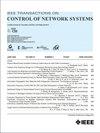社交媒体平台竞争中的误导监管
IF 4
3区 计算机科学
Q2 AUTOMATION & CONTROL SYSTEMS
引用次数: 0
摘要
社交媒体平台有各种各样的内容审核政策,许多知名企业都不愿实施严格的规定。这种不情愿的一个关键原因可能是宽松的监管带来的竞争优势。一个开始执行内容审核规则的流行平台可能会担心,它可能会把用户流失到监管较少的替代平台。此外,如果用户继续在其他平台上进行有害活动,监管最终将是徒劳的。本文通过考虑所有参与者(平台、新闻来源和社交媒体用户)的动机,确定维持平衡的监管政策,并评估每个平台上可用的信息质量,来研究内容审核的竞争方面。应用于简单但相关的社交网络,如随机块模型,我们的模型揭示了一个受欢迎的平台在不失去用户的情况下实施严格监管的条件。监管的有效性取决于新闻帖子的扩散特性、社交媒体上的朋友互动质量、社区的规模和凝聚力,以及同情者对来自网红的意外新闻的欣赏程度。本文章由计算机程序翻译,如有差异,请以英文原文为准。
Misinformation Regulation in the Presence of Competition Between Social Media Platforms
Social media platforms have diverse content moderation policies, with many prominent actors hesitant to impose strict regulations. A key reason for this reluctance could be the competitive advantage that comes with lax regulation. A popular platform that starts enforcing content moderation rules may fear that it could lose users to less-regulated alternative platforms. Moreover, if users continue harmful activities on other platforms, regulation ends up being futile. This article examines the competitive aspect of content moderation by considering the motivations of all involved players (platformer, news source, and social media users), identifying the regulation policies sustained in equilibrium, and evaluating the information quality available on each platform. Applied to simple yet relevant social networks, such as stochastic block models, our model reveals the conditions for a popular platform to enforce strict regulation without losing users. Effectiveness of regulation depends on the diffusive property of news posts, friend interaction qualities in social media, the sizes and cohesiveness of communities, and how much sympathizers appreciate surprising news from influencers.
求助全文
通过发布文献求助,成功后即可免费获取论文全文。
去求助
来源期刊

IEEE Transactions on Control of Network Systems
Mathematics-Control and Optimization
CiteScore
7.80
自引率
7.10%
发文量
169
期刊介绍:
The IEEE Transactions on Control of Network Systems is committed to the timely publication of high-impact papers at the intersection of control systems and network science. In particular, the journal addresses research on the analysis, design and implementation of networked control systems, as well as control over networks. Relevant work includes the full spectrum from basic research on control systems to the design of engineering solutions for automatic control of, and over, networks. The topics covered by this journal include: Coordinated control and estimation over networks, Control and computation over sensor networks, Control under communication constraints, Control and performance analysis issues that arise in the dynamics of networks used in application areas such as communications, computers, transportation, manufacturing, Web ranking and aggregation, social networks, biology, power systems, economics, Synchronization of activities across a controlled network, Stability analysis of controlled networks, Analysis of networks as hybrid dynamical systems.
 求助内容:
求助内容: 应助结果提醒方式:
应助结果提醒方式:


